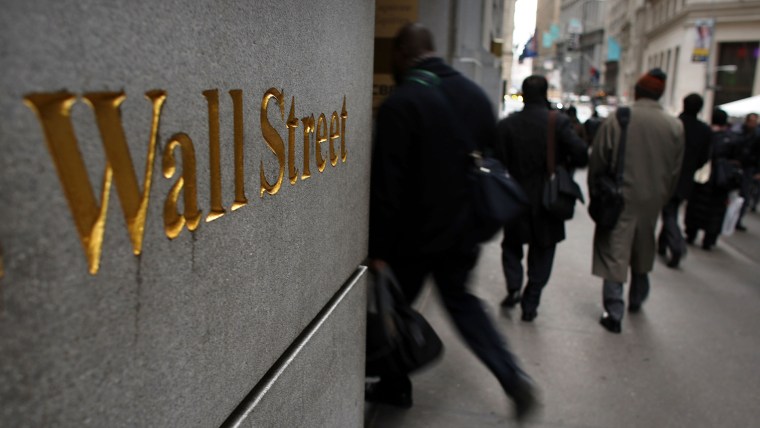The Wall Street Journal had an interesting report a few weeks ago on the Trump administration's perspective on a looming trade war: the health of the U.S. economy gives the White House some "leeway" to pursue the risky policies the president seems to prefer.
At the risk of over-simplifying, Donald Trump seems to be working from the assumption that even if his tariffs and related policies undermine economic growth in his own country, the economy is strong enough to effectively create a buffer. If his trade plans shave a point or two off the GDP, the argument goes, it still wouldn't push us into a recession.
The president lent his voice to this posture in a CNBC interview the other day, making the case that the relative strength of the stock market empowers him to take risks with his trade agenda.
"This is the time. You know the expression we're playing with the bank's money," he told CNBC's Joe Kernen in a "Squawk Box" interview aired Friday.The president has a big cushion. The S&P 500 is up 31 percent since Trump's win on Election Day, Nov. 8, 2016, through Thursday. The market's gain has slowed this year as the administration has implemented new tariffs on countries, with the benchmark index up 4.9 percent for 2018 through Thursday.Trump added the market would likely be much higher if he didn't escalate the trade issues with China and the rest of the world.
If you've ever wondered how Donald Trump managed to lose money running a casino, he occasionally helps answer the question.
Here's the president's pitch in a nutshell: Wall Street gains have generated a certain amount of wealth, which Trump believes puts him "ahead." If his trade war prevents the stock markets from doing even better, it will mean less generated wealth, but it won't wipe out all of the previous gains.
Ergo, he's "playing with the bank's money." No matter how bad things get as a result of his agenda, the gains probably won't be wiped out entirely, which means he won't fall "behind."
Except this isn't a responsible way to look at the debate. As Trump really ought to know by now, the stock market is not the economy, which makes this the wrong metric. To see Wall Street gains and losses as some real-time daily barometer of the nation's economic health is absurd.
And even if the White House were to consider market gains as the only thing that matters, it's not exactly reassuring for Trump to tell investors that he's deliberately pursuing policies that he knows will undermine their returns. Indeed, he's practically encouraging people to get out of the market.
What's more, it's not really "the bank's money" the president is playing with; it's our money. The more Trump's policies have an adverse effect on the economy, the more real people will feel the pinch. (Banks, meanwhile, will be fine.)
How is it, exactly, that the president is going to tell a whole lot of struggling farmers that their plight doesn't much matter because the S&P 500 gives him some "leeway"?
